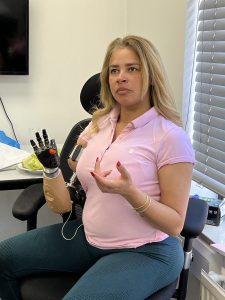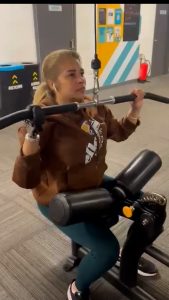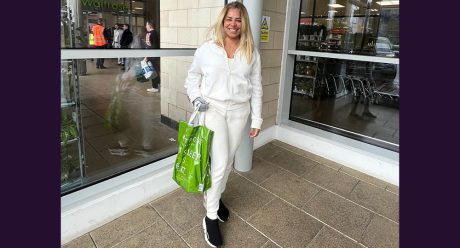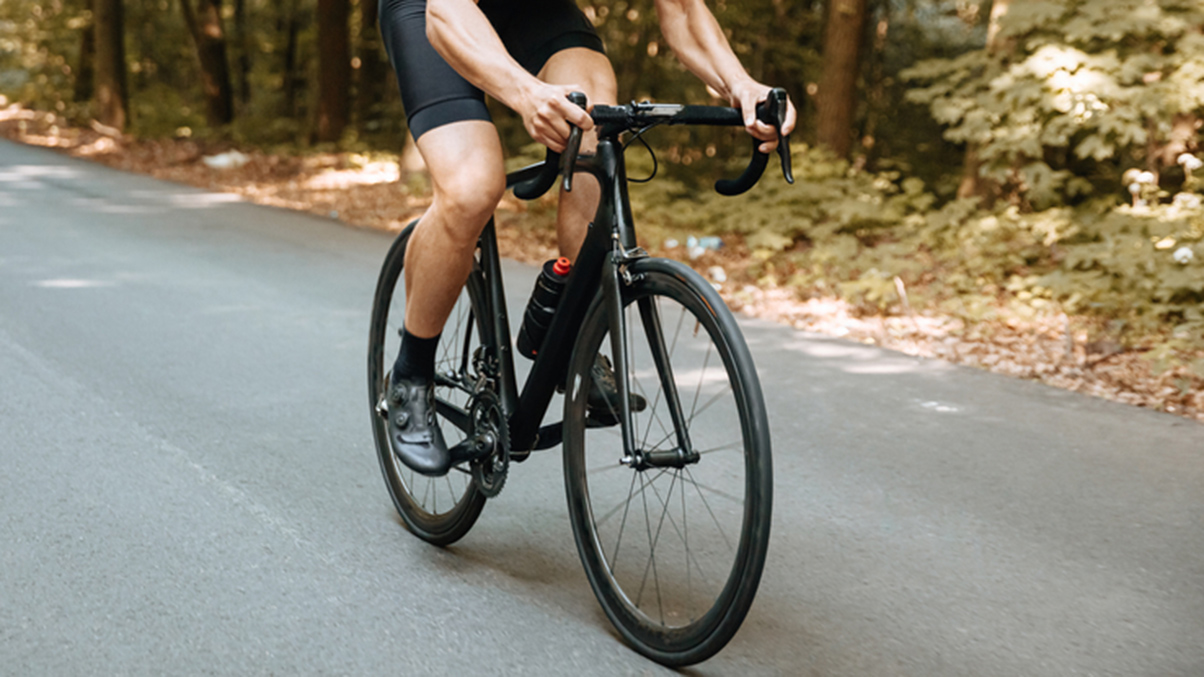Our client Caren was hit by a bus while cycling in February 2018. The collision resulted in Caren sustaining a severe crushing and degloving injury to her right arm. Liability was disputed until March 2022, when Caren’s claim settled shortly before the trial on liability with a deduction for contributory negligence.
Partner Nichola Fosler and paralegal Lizzie Dunn acted for Caren and review her case here.
The accident and injuries
 Caren was 36 years of age at the time of the collision. She was a single mum with a 16-year-old-daughter who was completing the final year of her GCSEs. Caren had just accepted a position to start a new job as receptionist for a high-end restaurant in London, which was due to open a few months after the collision. She also had plans to undertake training in hairdressing with the ambition to open her own salon.
Caren was 36 years of age at the time of the collision. She was a single mum with a 16-year-old-daughter who was completing the final year of her GCSEs. Caren had just accepted a position to start a new job as receptionist for a high-end restaurant in London, which was due to open a few months after the collision. She also had plans to undertake training in hairdressing with the ambition to open her own salon.
Caren was cycling along the Old Kent Road in south east London when she was knocked off her bicycle by a double-decker bus. The bus then ran over Caren’s right arm, causing significant injury. Caren was taken by air ambulance to Royal London Hospital, where she remained as an inpatient until May 2018.
Caren sustained numerous injuries, including a laceration to her forehead, fractures to her right humerus, right radius, ulna and carpel bone, and an open dislocation of the right elbow. Her other injuries included an open wound to her right upper arm and scarring to her right thigh and abdomen (due to an abdominal pocketing procedure attempted to try to salvage her arm).
Liability and court proceedings
The defendant [bus company and their insurers] denied liability for Caren’s accident.
Despite this denial of liability, the parties worked collaboratively, and the defendant agreed to pay for case management, treatment, and therapies under the Rehabilitation Code (which sets out a framework to provide treatment to claimants in personal injury cases). The defendant made several small interim payments until liability was resolved. Therapy included input from hand therapists, psychologists, occupational therapists, and physiotherapists, as well as consultations with orthopaedic and plastic surgeons and care and support from a care agency.
The claim was issued with the High Court in February 2021. After issuing court proceedings, a successful interim payment application was made for a significant value, allowing Caren to progress with ongoing case management and rehabilitation therapies.
The High Court listed Caren’s case for trial on liability in June 2022, but liability was resolved shortly prior to the trial. A joint settlement meeting (JSM) took place in March 2022 after the parties had exchanged evidence from liability/accident reconstruction experts. Unfortunately, a negotiated settlement was not possible at this meeting but both parties subsequently made settlement offers and the defendant accepted an offer made by Caren to resolve liability.
A costs and case management conference (CCMC) followed in August 2022, and the court set a timetable and cost budget to Trial. At the same time, the court ordered the release of a further substantial interim payment to enable Caren to go ahead with her planned elective amputation surgery to her right arm.
Caren’s claim was listed for a trial on quantum in January 2025. Sufficient time was given within the Court timetable to enable Caren to undergo her amputation surgery and commence her rehabilitation post-surgery prior to the quantum trial. In readiness for the trial, the court granted a vulnerable witness order to enable Caren to give her evidence via video link or behind a screen.
During the claim, Caren received interim payments totalling £821,400.
Amputation and targeted muscle reinnervation (TMR) surgery
In the initial period following the accident, Caren concentrated on seeking treatment and therapies to improve the function and appearance of her right arm. She then made the difficult decision to undergo an elective amputation after receiving support to make this decision from a multi-disciplinary team including a psychologist.
Caren’s treating surgeons provided input on the injury to her right elbow and whether it was sufficiently stable to proceed with a below-the-elbow (transradial) amputation. The consensus was that an above-the-elbow (transhumeral) amputation would be preferable. Discussions between a wide-ranging multidisciplinary team, the case manager, rehabilitation therapists and surgical teams, led to an agreement that TMR and osseointegration surgery (see below) were good options for Caren.
TMR surgery involves surgically rerouting the nerves that originally controlled the amputated limb to new muscle targets. By connecting these nerves to the remaining muscle, TMR can improve prosthetic limb control and help reduce or eliminate pain from phantom limb sensation.
Osseointegration is the scientific term for bone ingrowth into a metal implant. An artificial implant is permanently, surgically anchored and integrated into bone, which then grows into the implant. Osseointegration surgery is still a new medical area, particularly for upper limb amputees, so there are only a small number of surgeons in the UK who perform this procedure.
After meeting the medical teams that perform TMR, Caren agreed to have her amputation and TMR with Re: Limb (specialists in reconstructive services for amputees). Mr Norbert Kang of Re: Limb performed the surgery in December 2022 and provided Caren with comprehensive care post-surgery.
After the surgery, Caren required a bone graft to strengthen her humerus bone before undergoing the osseointegration surgery. She also required a bespoke implant. Caren underwent the osseointegration surgery in May 2023: she is the first woman in the UK to have successfully had trans humeral osseointegration with an OPL implant.
Pre-rehabilitation
Caren benefitted from the input of a case manager throughout; at the time of settlement, her case manager was Katie Temple of Cooci Associates, and prior to that Jude Greenfield.
It was important that Caren weighed up all the pros and cons of the elective amputation and had pre-rehabilitation beforehand. This included psychological therapy, physiotherapy, massage therapy, hydrotherapy, and discussions with prosthetists.
Myoelectric prosthesis journey
Caren’s amputation surgery and post-amputation rehabilitation was provided by Re: Limb and Dorset Orthopaedic, specialists in prosthetic rehabilitation. In addition, input was sought from Remedy Healthcare, including personal trainer physiotherapy, rehabilitation consultancy and occupational therapy. 
Caren completed several inpatient stays at the Dorset Orthopaedic clinic in Egham, Surrey, firstly to gradually build up the weight carried through the bone anchor and then to begin learning how to use her prosthesis following her surgery and implement that into her daily life.
High functioning prosthetics are heavy. Osseointegration (a bone anchor) is a method of suspension which allowed Caren to use a myoelectric prostheses (with motors and batteries to power movement). Caren attaches the prosthesis to her per-cutaneous implant in the upper part of her arm. She controls her prosthesis via skin surface electrode contact using CoApt, a patten recognition system. CoApt gives Caren more natural, intuitive command of her prosthesis as she can make simultaneous movements. Together, osseointegration and CoApt allows Caren unrestricted shoulder range of motion and high function.
The team at Dorset Orthopaedic worked closely with Caren to teach her how to use her new myoelectric arm. Caren exceeded expectations with how well she adapted to using it. By the time of the settlement of her claim Caren was able to use her myoelectric prosthesis for a wide range of activities of daily living including to successfully tie her up her hair, straighten and curl her hair and use clippers to trim her dog’s fur. The team were in awe of how Caren found new ways to perform these everyday activities.
Settlement
Caren’s claim was recently settled for a seven-figure sum. Lead counsel was Stuart McKechnie KC from Deka Chambers, and junior counsel was Jennifer Danvers from Cloisters Chambers. David Sanderson advised on liability.
At the settlement meeting, the parties agreed that Caren needed to be properly compensated to secure enough funding for her future prosthetics, accommodation, treatment, equipment and therapies and ongoing case management and care.
Multiple experts were instructed to enable Stewarts to properly value Caren’s claim and produce reports on her future prognosis. The list of expert disciplines included amputee rehabilitation orthopaedics, prosthetics, care and occupational therapy, accommodation, physiotherapy, neurology, vestibular, neuropsychology, psychiatry, plastic surgery, pain management and assistive technology.
The settlement monies will ensure Caren is compensated for her injuries and financially secure to meet her disability needs for the rest of her life. The settlement also included provision for Caren to undergo implanted electrode surgery when it becomes available in the UK.
Testimonial
 Caren said: “I am so glad that Nichola was my solicitor. Throughout the whole of my claim, Nichola was calm and understanding always making me feel comfortable in the most stressful of situations. She made me feel that I had someone there who understood me and my needs. I don’t think I could have had any other solicitor other than Nichola!
Caren said: “I am so glad that Nichola was my solicitor. Throughout the whole of my claim, Nichola was calm and understanding always making me feel comfortable in the most stressful of situations. She made me feel that I had someone there who understood me and my needs. I don’t think I could have had any other solicitor other than Nichola!
“Stuart McKechnie always understood and listened to me. He advised me in the best way possible. I also want to thank London Air Ambulance for everything they did to help me. As well as my case managers – Katie Temple and Jude Greenfield. Both Katie and Jude made a huge difference in my life.
“Now that my case is settled, I can gradually get my life back as it has been several years of stressful ups and downs – I now have time back for myself. I am slowly getting back to the gym and can live a more normal life. As difficult as it was to choose to have my arm amputated, I am glad I did as I now have a functioning arm to help me in everyday activities.”
Comment from Ruth Nicholson, Dorset Orthopaedic
“It has been a positive experience to see Caren learn how to harness the potential of the technology available to her. Through her perseverance and strong work ethic Caren has learnt to overcome her functional barriers. It has been a privilege to be part of her journey so far. Caren has taught us a lot along the way, and I look forward to working with her in the future following implanted electrode surgery.”
You can find further information regarding our expertise, experience and team on our Personal Injury and page.
If you require assistance from our team, please contact us.
Subscribe – In order to receive our news straight to your inbox, subscribe here. Our newsletters are sent no more than once a month.





